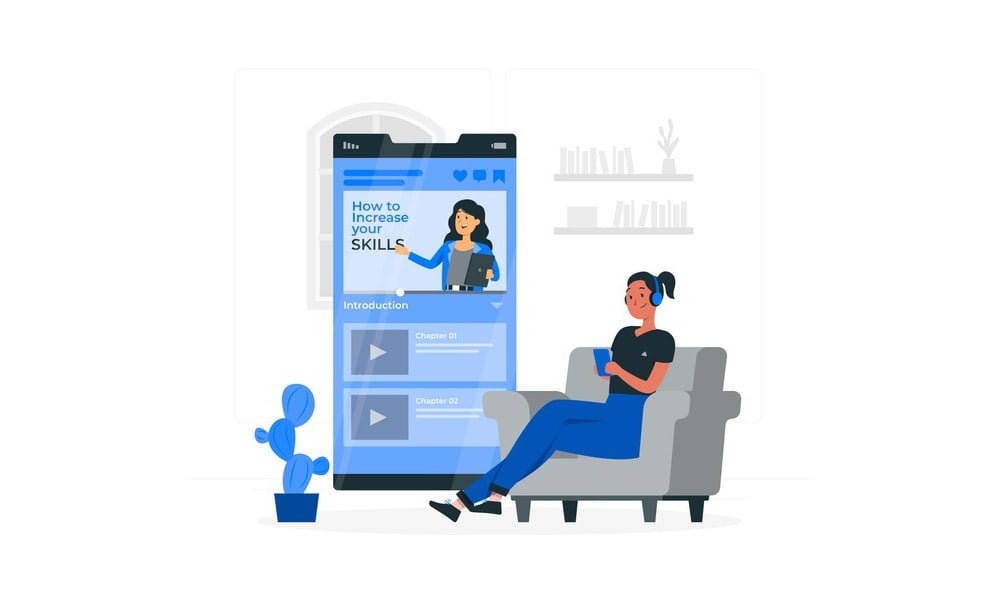Building rapport (or a close relationship) with clients is one of the most rewarding things you can do to pave the road toward a successful freelance career.
When you have a close professional relationship with your clients, it’s easier to work on projects, it’s easier to understand their needs, and it’s easier to deliver projects that meet their expectations.
More importantly, it helps you to build trust and get more work from the same client for long periods of time.
I’ve been working with this one client for over 5 years. One time, I actually tried to leave his company to work for a different company but he didn’t let me.
Because we have a close yet professional relationship. And he knows that kind of relationship takes a lot of work and time to develop with another freelancer.
That’s just one example of how incredibly rewarding it can be to have a good relationship with your clients. It’s a surefire way to get repeat clients too.
If you also want to have that kind of relationship with your clients, follow these tips and learn how to build rapport with clients.
1. Learn To Communicate

The number one key ingredient to developing rapport with clients is good communication.
Writing a good email is a basic life skill that you must learn to master from the very beginning. There’s a strong psychological aspect to it too.
For example, the way you start your email could determine what kind of relationship you can build with your client.
“A person’s name is to that person, the sweetest, most important sound in any language.” – Dale Carnegie
Simply addressing the client by his/her first name is a good start. This shows respect and friendliness towards creating a personal connection with the client.
The way you write proposals, respond to client requests, feedback, and keeping them up-to-date on your project progress are also very important.
These small things are what creates the foundation for a good client-freelancer relationship.
2. Be Reliable

When you need help with something you usually call your best friend, right? And if this friend is reliable, they will always be there for you no matter what.
Be that friend for your client, work-wise, of course.
When the client asks you to update one of your articles, fix a small bug in your code, change the font in a social media graphic, don’t delay it to tomorrow. Go do it right away!
The client won’t expect a fast response like that from a freelancer, only from a friend.
Show them that you can be reliable and be there when the client needs you, no matter what.
3. Deliver On Time

Having a close relationship with your client doesn’t mean you get to do whatever you want and deliver projects whenever you feel like it.
Even if the client is a close friend, be punctual.
Plan your projects ahead and give realistic schedules. Or plan ahead to meet the deadlines.
This is another important part of being reliable. You will never be a reliable freelancer if you keep asking for more time to deliver a project.
4. Don’t Make Excuses

A common mistake most freelancers make when clients give feedback is making excuses to defend their choices.
For example, when a client says the font you’ve used in a design should be changed, an egocentric freelancer would go on a rant explaining why they used that font.
There are ways to accept criticism and explain your creative thinking to a client. But you need to do that through a discussion and by understanding their expectations.
Whatever you do, don’t make excuses.
Whether you made a mistake or missed a deadline, own up to your mistakes. And make sure it never happens again.
5. Ask For Feedback

Asking clients for reviews is now routine behavior for most freelancers. But I’m not talking about that kind of feedback.
If you want to keep your client satisfied, you need to understand what their expectations are.
So, from time to time, ask how you’re doing and if they’re satisfied with your work. Ask if there is anything you can do to improve your work.
This not only shows your willingness to improve but also helps get closer to the client and understand the way they think.
6. Learn From Mistakes

Even if you do everything perfectly, there will be times when you make a mistake.
It could something as simple as a typo in a product page copy to a site-breaking error in your code.
Whatever it is, you need to own up to your mistakes. More importantly, learn from the mistake.
If you’re not too sure how to do that, ask the client what went wrong. Or ask them what you can do to avoid making that mistake again.
7. Don’t Apologize, Too Much

I really hate when people apologize all the time, especially as an excuse, over and over again.
Sorry for the late reply. Sorry, it won’t happen again. Sorry I missed the deadline.
It’s fine to apologize once. But if you keep apologizing all the time, you will eventually annoy your client.
Next time, if you’ve made a mistake that could not be avoided, try a different approach instead of apologizing.
Here’s an example: “Hi John, I went to see my friend at the hospital yesterday so I missed the deadline. I’ll deliver the project later today.”
By the way, this is one of the rare occasions that’s okay to make an excuse. Because it’s way better than apologizing all the time.
8. Be Trustworthy

When you build a strong relationship with a client, they will often ask you to do important tasks for them.
For example, one of my clients asks me to handle content for their social media channels. Because he trusted me enough to take that responsibility.
Of course, it took me a few years to build that trustworthy relationship with him. But I was always reliable when my clients need me.
Building trust with your clients goes both ways. If you stay honest and reliable, your clients will surely give you more responsibilities.
Also, Avoid These Mistakes
When following these tips, also remember to be mindful about how you deal with your client.
Be reliable and friendly, but know the limit. Some clients may try to take advantage of your good habits. So don’t be a pushover.
Ask for feedback and learn from mistakes, but don’t let the client change you or your creative choices. Sometimes, you need to stand up for what you believe in.
Overall, these are good habits that will make you a great freelancer that your clients will love and admire. But you don’t have to go changing your personality. Try one or two things at a time and see how it goes from there.
Images via Freepik.com

